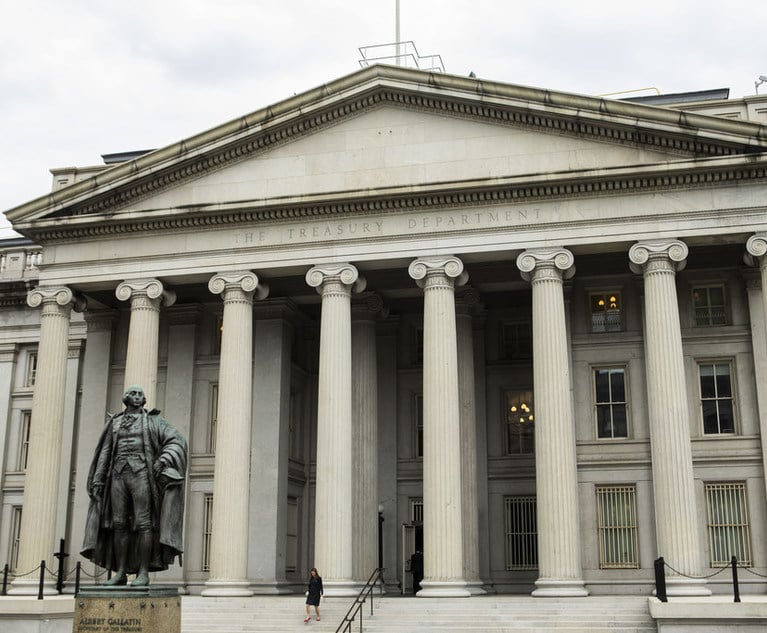NTSB says stop using mobile devices while driving
This week, the National Transportation Safety Board (NTSB) called for a nationwide ban on the use of mobile devicessuch as cell phones and Blackberryswhile driving.
December 16, 2011 at 06:41 AM
2 minute read
The original version of this story was published on Law.com
This week, the National Transportation Safety Board (NTSB) called for a nationwide ban on the use of mobile devices—such as cell phones and Blackberrys—while driving. According to the board, more than 3,000 deaths in 2010 can be attributed to drivers distracted while using a portable electronic device (read the NTSB's fact sheet, “Put the Brakes on Distracted Driving”).
“The NTSB is taking a very strong stand on this issue because we're seeking red flags when it comes to distraction, with both hand-held and hands-free,” NTSB Chairman Deborah Hersman told the Wall Street Journal in an interview.
“It may seem like it's a very quick call, a very quick text, a tweet or an update,” Hersman said in an earlier statement. “But accidents happen in the blink of an eye.”
The ban poses a particular threat to companies that have employees who drive as part of their workday. Some experts believe, if employers don't already have mobile device policies in place, now is the time to implement them.
“If an employee had a car accident while talking on a cell phone, those policies help employers establish that they were not vicariously liable because the employee was not carrying out their job duties by talking on the phone, and/or that the employer wasn't negligent by permitting their employees to use a cell phone while driving,” Harry Weitzel, a labor and employment partner at Pepper Hamilton, told the Orange County Register this week.
While some states, such as New York and Washington, have laws against any driver using mobile devices, others don't. In the 2010 article “How to Create a Cell Phone Policy,” Inc. magazine writes, “Even if your state doesn't have such legislation, your policy should completely prohibit drivers from using cell phones during work hours—especially in company-owned transportation. In the event of an accident, an injured party will likely sue the company—not the employee.”
This content has been archived. It is available through our partners, LexisNexis® and Bloomberg Law.
To view this content, please continue to their sites.
Not a Lexis Subscriber?
Subscribe Now
Not a Bloomberg Law Subscriber?
Subscribe Now
NOT FOR REPRINT
© 2025 ALM Global, LLC, All Rights Reserved. Request academic re-use from www.copyright.com. All other uses, submit a request to [email protected]. For more information visit Asset & Logo Licensing.
You Might Like
View All
Netflix Music Guru Becomes First GC of Startup Helping Independent Artists Monetize Catalogs
2 minute read
Global Software Firm Trying to Jump-Start Growth Hands CLO Post to 3-Time Legal Chief

Supreme Court Reinstates Corporate Disclosure Law Pending Challenge

Meta Workers Aren't of One Mind on Company's Retreat From DEI, Fact-Checking
Trending Stories
- 1Charlie Javice Fraud Trial Delayed as Judge Denies Motion to Sever
- 2Holland & Knight Hires Former Davis Wright Tremaine Managing Partner in Seattle
- 3With DEI Rollbacks, Employment Attorneys See Potential for Targeting Corporate Commitment to Equality
- 4Trump Signs Executive Order Creating Strategic Digital Asset Reserve
- 5St. Jude Labs Sued for $14.3M for Allegedly Falling Short of Purchase Expectations
Who Got The Work
J. Brugh Lower of Gibbons has entered an appearance for industrial equipment supplier Devco Corporation in a pending trademark infringement lawsuit. The suit, accusing the defendant of selling knock-off Graco products, was filed Dec. 18 in New Jersey District Court by Rivkin Radler on behalf of Graco Inc. and Graco Minnesota. The case, assigned to U.S. District Judge Zahid N. Quraishi, is 3:24-cv-11294, Graco Inc. et al v. Devco Corporation.
Who Got The Work
Rebecca Maller-Stein and Kent A. Yalowitz of Arnold & Porter Kaye Scholer have entered their appearances for Hanaco Venture Capital and its executives, Lior Prosor and David Frankel, in a pending securities lawsuit. The action, filed on Dec. 24 in New York Southern District Court by Zell, Aron & Co. on behalf of Goldeneye Advisors, accuses the defendants of negligently and fraudulently managing the plaintiff's $1 million investment. The case, assigned to U.S. District Judge Vernon S. Broderick, is 1:24-cv-09918, Goldeneye Advisors, LLC v. Hanaco Venture Capital, Ltd. et al.
Who Got The Work
Attorneys from A&O Shearman has stepped in as defense counsel for Toronto-Dominion Bank and other defendants in a pending securities class action. The suit, filed Dec. 11 in New York Southern District Court by Bleichmar Fonti & Auld, accuses the defendants of concealing the bank's 'pervasive' deficiencies in regards to its compliance with the Bank Secrecy Act and the quality of its anti-money laundering controls. The case, assigned to U.S. District Judge Arun Subramanian, is 1:24-cv-09445, Gonzalez v. The Toronto-Dominion Bank et al.
Who Got The Work
Crown Castle International, a Pennsylvania company providing shared communications infrastructure, has turned to Luke D. Wolf of Gordon Rees Scully Mansukhani to fend off a pending breach-of-contract lawsuit. The court action, filed Nov. 25 in Michigan Eastern District Court by Hooper Hathaway PC on behalf of The Town Residences LLC, accuses Crown Castle of failing to transfer approximately $30,000 in utility payments from T-Mobile in breach of a roof-top lease and assignment agreement. The case, assigned to U.S. District Judge Susan K. Declercq, is 2:24-cv-13131, The Town Residences LLC v. T-Mobile US, Inc. et al.
Who Got The Work
Wilfred P. Coronato and Daniel M. Schwartz of McCarter & English have stepped in as defense counsel to Electrolux Home Products Inc. in a pending product liability lawsuit. The court action, filed Nov. 26 in New York Eastern District Court by Poulos Lopiccolo PC and Nagel Rice LLP on behalf of David Stern, alleges that the defendant's refrigerators’ drawers and shelving repeatedly break and fall apart within months after purchase. The case, assigned to U.S. District Judge Joan M. Azrack, is 2:24-cv-08204, Stern v. Electrolux Home Products, Inc.
Featured Firms
Law Offices of Gary Martin Hays & Associates, P.C.
(470) 294-1674
Law Offices of Mark E. Salomone
(857) 444-6468
Smith & Hassler
(713) 739-1250






